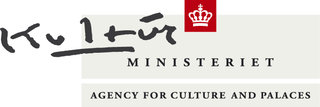The Ministry of Culture and the Ministry of Foreign Affairs of Denmark’s fund for strategic cultural collaboration
Read more about distribution from the international cultural collaboration fund in 2024-25
Professional Danish cultural operators (institutions or organizations) and the Ministry of Foreign Affairs’ missions in other countries can apply for funding under the strategic framework on Denmark’s international cultural collaboration, in order to develop the three focus areas, in collaboration with international partners:
- Sustainability and green transition
- Technology and the democratic dialogue
- Urban and rural areas
Read more about the three themes and focus areas here
The funding associated with the Strategic Framework is expected to amount to DKK 12,800,000 for the period 2023-2024 and makes up a central part of the annual allocation of funds for the international cultural collaboration (cf. the Finance Act article § 21.21.46.20). The fund can be applied for two times annually through the Agency for Culture and Palaces.
Applications are assessed by the steering group for the collaboration agreement between the Ministry of Culture and the Ministry of Foreign Affairs on the recommendation of the Agency for Culture and Palaces.
Applications are accepted from Danish cultural actors at institution or organisation level, which play a professional role, either as a profession or commercially. In this context, ‘professional’ is defined for institutions or organisations as having art and culture as their primary area of activity. Danish missions – embassies or consulates – abroad may also apply in collaboration with international partners for projects that primarily take place abroad.
There will be focused on supporting bigger cultural projects with wide stakeholder communities.
Funding under the Strategic Framework will be distributed in the following way:
Fund for strategic cultural collaboration
The two annual deadlines are March 1, 2024, 2 pm CET, and September 27, 2024, 2 pm CET.
The purpose of the fund is to promote strategic development projects and interdisciplinary cultural capacity building. In collaboration with international partners, the fund is intended for projects and capacity building that support one or more of the following three focus areas: 1) Sustainability and green transition, 2) Technology and democratic dialogue and/or 3) Urban and rural areas.
Applications are accepted from Danish cultural actors at institution or organisation level, which play a professional role, either as a profession or commercially. In this context, ‘professional’ is defined for institutions or organisations as having art and culture as their primary area of activity. Danish missions – embassies or consulates – abroad may also apply in collaboration with international partners for projects that primarily take place abroad. Danish missions cannot apply for project management nor holding of own expenses regarding traveling, accommodation or participation.
- Projects and capacity building targeting Sustainability and green transition must place emphasis on the development of international collaboration projects that focus on the potential of culture for inclusion and the social aspects of sustainability and green transition, for example, architecture, institutions and the ’live area’.
- Projects and capacity building targeting Technology and democratic dialogue must promote the ability of culture to create areas of trust/safe spaces/open spaces in a complicated technological world through international partnerships and initiatives that focus on developing, supporting and documenting cultural areas of trust in concrete projects. The initiatives may also be physical, digital or hybrid, but they must actively take technological opportunities and limitations into account in relation to democratic areas.
- Projects and capacity building targeting Urban and rural areas must promote and support interdisciplinary, professional and international cultural projects in urban and rural areas, and support the involvement of civil society and its resources, including work with communities and the involvement of children and young people in concrete cultural projects.
